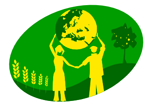CAP 2020: More deregulation will not solve the problems

 Press Release
Press Release
Brussels, 1 June 2016
CAP 2020: More deregulation will not solve the problems… caused by deregulation and short-sighted decision-makers
Following the European agricultural ministers’ informal Council meeting on 30 and 31 May in the Netherlands, the European Coordination Via Campesina1 examined the document “Food for the future – the future of food” proposed by the Dutch EU Presidency to kick-off discussions on the future of the CAP after 2020, as well as the Council’s discussions.
Despite its announced openness to the food issue, ultimately, it is a very partial view of the problem that has emerged. The notion of “demand”, centered on the needs of affluent consumers in terms of transparency, omits the issue of access to quality food for millions of poor people in Europe, and the health problems related to industrial food. The attention given to “production” disappointed as well, since it only concerns modernized farmers or those following that approach, as expressed in the passage on new ICTs.
Ultimately, the Dutch Presidency is proposing an increase in the free-market and industrial features of our AgriFood system, this despite the hardships endured by many sectors as a result of the abandonment of market regulation tools:
Ramona Duminicioiu, Romanian peasant, laments: “no mention is made of the future of millions of small farms and of the agricultural problems that we’re experiencing in Romania as well as in many Eastern European countries, especially against land grabbing and the anarchic development of mass distribution. “
Jose-Miguel Pacheco, peasant from Portugal, declares: “policy makers are not learning the lesson given to us by the dairy crisis; what Europe needs is the public regulation of markets and production, not the so-called regulation by a market dominated by a handful of multinationals that is currently sending countless producers to the unemployment line “.
For Jyoti Fernandes, peasant in the UK, “an improved CAP must strengthen the innovative systems based on direct links between producers and consumers that exist today, despite the CAP and not thanks to it.”
If Europe is to survive, while the CAP has a central role in European policies, it will have to meet the real expectations of people in terms of food, environment, employment, lively rural areas and overcome Free Market dogmatism. In light of the first proposals, there are still much work and mobilisations needed.
Contacts:
Geneviève Savigny +33 6 25 55 16 87 FR-EN-ES
Ramona Duminicioiu +40 746 337 022 EN- FR-RO-ES
Jose-Miguel Pacheco +35 1 918 736 441 PT-ES
Jyoti Fernandes +44 7875849754 EN
European Coordination Via Campesina
Rue de la Sablonnière 18, 1000 Brussels (BE)
www.eurovia.org
info@eurovia.org
T: +32 (0)2 21 73 112
F:+32 (0)2 21 84 509
[1]The European Coordination Via Campesina is a European organization which currently includes 28 national or regional organizations of farmers, farm workers and rural organizations based in 18 European countries. Its main objective is the promotion of family and peasant farming, diversified and sustainable, based on the principles of food sovereignty The European Coordination Via Campesina is recognized by the European institutions and international organizations as a stakeholder. She participates in advisory groups of the European Commission, is invited by the European Parliament to participate in public hearings, and is a member of the Mechanism of civil society in the Committee on World Food Security of the United Nations.
